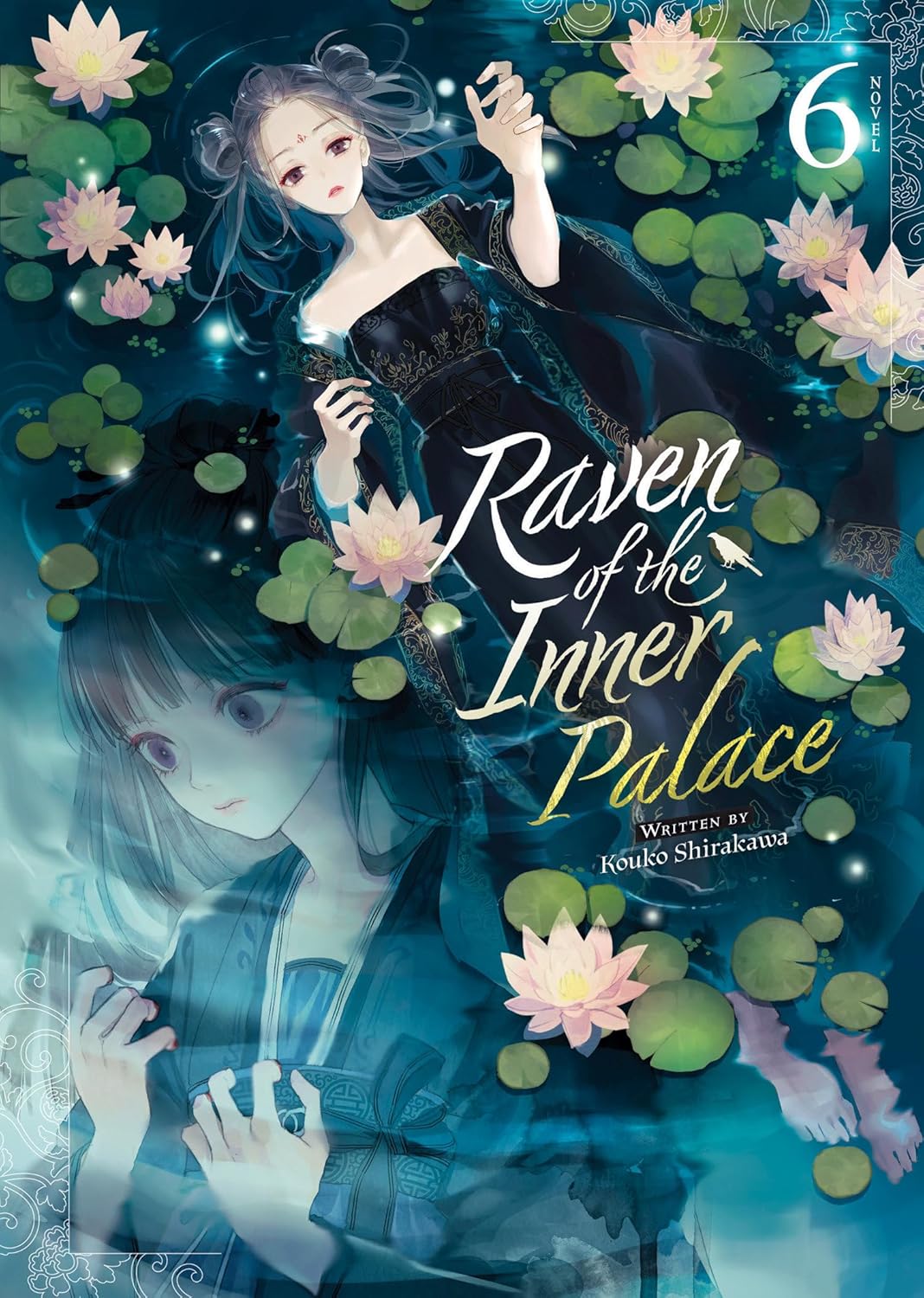By Kouko Shirakawa and Ayuko. Released in Japan as “Kōkyū no Karasu” by Shueisha Orange Bunko. Released in North America by Airship. Translated by Amelia Mason.
Yeah, sorry, the days of solving ghost crimes are officially history, unless you mean the overall plot, which is more like God vs. God. Though we do get to see everyone trying to solve the mystery of Jusetsu’s ghost, sort of, and Shiki still has the arm of his dead sister, who actually ends up saving the day. But really, this is the first part of a two-part finale, and as such it’s taking all the political drama and intrigue and fantasy deity stuff from the past five books and setting off all the guns at once. Honestly, it’s hard to put down, as it barrels along till it gets to the final chapter, which slows way down but has more of a devastating impact because of that. In general, if you really enjoyed previous volumes of this series, you will enjoy this volume, and the wait for the final volume will likely prove quite difficult.
There is, frankly, too much for Koshun to deal with right now. After the events of the last volume, everyone knows that there’s a member of the Ran family, who were supposed to be completely wiped out, in the Inner Palace. Jusetsu is no longer in her body, which is now possessed by the Raven, who is only partly helpful after having been betrayed for so long. And there are any number of political allies and enemies looking to take advantage of this. Fortunately, he’s able to calm things down a bit with a few well-placed cabinet meetings, as well as one of our main characters finally having to bite the bullet and admit that he’s a lot closer to Jusetsu than anyone thought. Meanwhile, Jusetsu herself is in limbo, depicted here as a river (the cover shows this), but has to deal with Kosho, the one who started all this, who has been trapped there forever by the gods and really wants someone else to join her in despair.
The last half of the book continues to deal with the main plot, but away from the two leads. We get Senri and Shiki acting as a sort of Holmes and Watson as they try to work out how much of the volcano story is actual history in order to try to get the other half of the Raven’s body back. This is particularly difficult for Shiki as he runs into the man he wants revenge on, the very revenge that his sister is trying to stop him getting. This was very good. The last chapter returns us to the family drama of the Saname family, which, and for once I mean this in a GOOD way, reads a lot like a Sam Shepard play. In fact, it reads like Buried Child. Shin suffers very well, as every around him tries to convince him to get the hell away from there, only in the most awkward and counter-intuitive way. This is excellent, and possibly the highlight of the book, provided you don’t mind awfulness.
Everyone’s arrived at the volcano site by the end of this book, and it’s going off again for the cliffhanger. Can’t wait to see how this wraps up.



